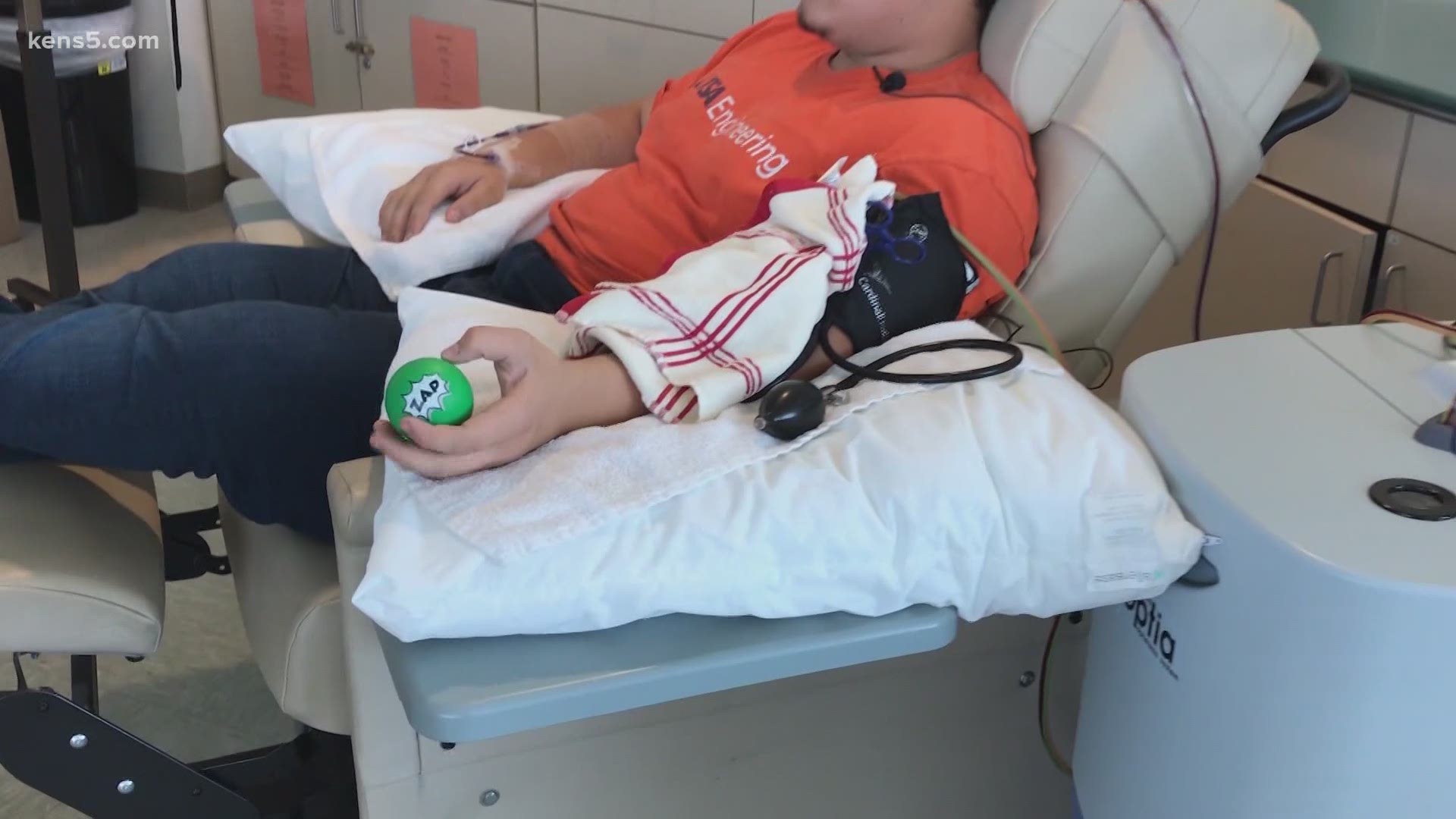SAN ANTONIO — The South Texas Blood and Tissue center says the ongoing pandemic has led to people waiting for a life-saving bone marrow transplant to wait even longer.
“People really don’t understand until it hits home,” said, Naomi Herrera, who works in the region's biggest blood bank.
It's personal for her. Herrera’s daughter, Taylor Castro, died after being diagnosed with leukemia.
“She just thought she was sick, had the flu (or) had an earache," Herrera said. "(We) had some blood work done and we came out with the diagnosis of leukemia."
Castro would’ve had a chance to live if she had only received a bone marrow transplant. But she wasn’t able to find a DNA match in time.
“I knew already what needed to be done—get her on the list and just try to find somebody. It’s not as easy as that,” Herrera said.
According to STBTC, white people are more likely to find a match for bone marrow than those of other ethnicities.
Since the pandemic began, those chances have become even slimmer.
In September of 2019, the center had 639 people registered in the Be The Match program. This September, it's had only 62.
“I knew it was going to drop because of the pandemic, but that’s terrible and I can’t imagine how slimmer it’s making peoples' chances,” San Antonio mom Kate Goodwin said.
Goodwin’s son, Kane Goodwin, was much more fortunate. He was able to find a match in time.
Now Herrera has start the #TeamTaylor campaign to bring awareness to help those still waiting for their match.
“We’re always trying to add people on this registry, I don’t want other people to go through what we went through," she said. "I don’t want other moms to lose their children."
To sign up for the Be The Match program, click here. Once you sign up, you’ll be sent a mouth swab to send back so that the center has your DNA type.
You’ll then be put into a database registry and will be called as people who are looking for donors match your DNA.

